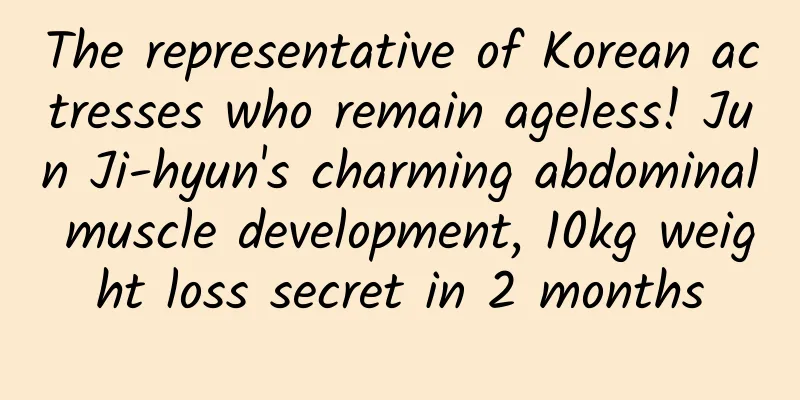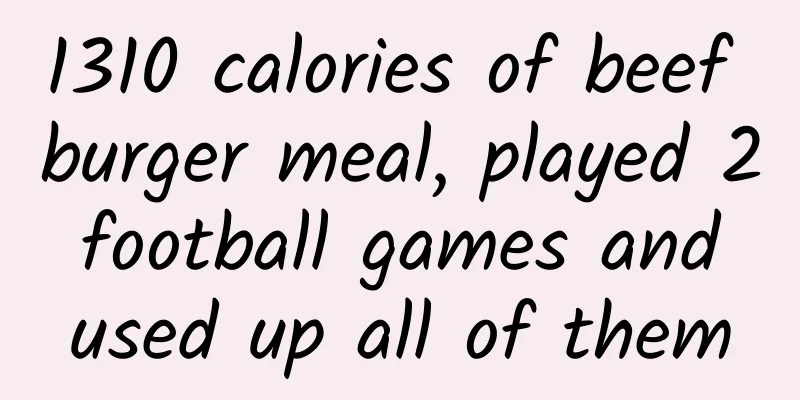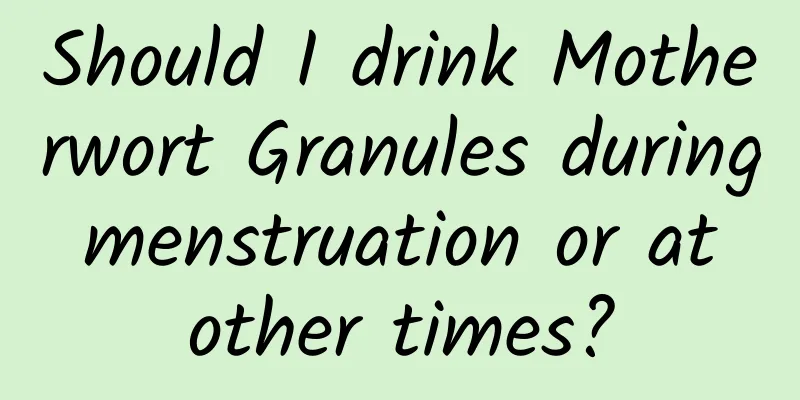Winter is the best time to lose weight 4 secrets to lose weight

|
Many people have a question in their mind: "It seems that it is easier to gain weight in autumn and winter!" Autumn and winter seem to be the seasons when it is easy to gain weight. Is autumn and winter suitable for losing weight? Now, let’s discuss the topic of losing weight in autumn and winter! In theory, autumn and winter are a great time to lose weight! From a physiological point of view, autumn and winter help to lose weight! Because in the autumn and winter (cold weather) seasons, the body must consume a lot of energy to maintain body temperature. Humans are warm-blooded animals, and their bodies basically maintain a constant temperature (around 37°C). When the weather is hot and the ambient temperature is too high (such as in summer), the body temperature will be lowered through various mechanisms (such as pores, blood vessel dilation, sweating, and drinking water) to maintain the constant temperature mentioned above. On the contrary, when the weather is cold, the body will also use some mechanisms to reduce temperature loss and maintain a constant body temperature, such as contraction of pores and blood vessels (so the face looks paler and peripheral blood circulation is poorer), shivering due to cold weather (muscle contraction helps produce heat), etc. Theoretically, when the ambient temperature is too low, the body will burn calories to produce heat, keeping the body temperature at a constant 37°C, which is higher than the ambient temperature. In other words, the body consumes more calories in winter (more than in summer). From the perspective of weight loss, increased consumption will certainly help with weight loss. From a realistic point of view, it is easy to gain weight in autumn and winter! Although in theory autumn and winter help with weight loss, in reality, many people tend to gain weight in autumn and winter. There are three main reasons: 1. Weight maintenance mechanism: Although the body must consume more calories to maintain body temperature due to the cold weather in autumn and winter, due to the natural constancy of weight, when you lack energy, the brain will prompt you to eat more calories to make up for the calories consumed to maintain body temperature. Simply put, the body's desire to eat will also increase. You will find that when the weather is cold, you will feel too lazy to move and have a stronger desire to eat. Even if you are full and not hungry, your body tends to crave "hot" and "heavy-tasting" food, so it is easy to consume more calories. 2. Influence of environment and food culture: Autumn and winter are not only the time to nourish the body (food culture custom), but also the season with more dinner parties and social gatherings: from Christmas, New Year's Day to the Lunar New Year (a national custom of eating from New Year's Eve to the fifteenth day of the first lunar month). Filled with a lot of eating and drinking occasions. The winter vacation for students and the consecutive holidays that office workers may encounter after October not only increase the number of gatherings and social events, but the domestic vacations or overseas travel plans resulting from the long holidays are also occasions that may cause weight to get out of control. 3. Reduced awareness of body shape: When food is full of temptations and the body has a high desire for calories, coupled with the fact that people wear heavy clothes due to the cold weather, their awareness of maintaining their body shape will decrease (in the summer, people wear fewer clothes, so when they gain weight, it cannot be covered and is very obvious; in the winter, people wear thicker clothes, which cover the weight, making it very easy to accumulate several kilograms of fat on their body without realizing it). How to lose weight successfully in autumn and winter? Since the main factors affecting weight loss in autumn and winter are physiological (constant weight) and environmental (many gatherings and social occasions), if you want to solve this problem, you naturally have to start from these two directions: Tip 1/[Physiological aspect] "Moderately" meet the needs of the body! When the weather is cold, our bodies tend to prefer foods with higher temperatures and stronger flavors. In addition, low temperatures shorten the time that food stays in the stomach. These factors will affect our satisfaction with food, making some of the light meals (light, simple foods) that we usually eat to lose weight, less likely to satisfy our appetite at this time. Basically, there are some tricks we can use to solve this overeating problem caused by cold weather. Tip 2: Change the cooking method when cooking for yourself: Since our bodies tend to crave hotter, heavier foods when the weather is cold, we satisfy our body’s cravings by changing our cooking methods. For example, if you usually eat simple meals such as salads, sandwiches or oatmeal, you can change to eating hot meals with stronger flavors. For example: ◆Change the sandwich into rice noodles or noodle soup: **You can use master cooker, chicken broth cubes, etc. as the soup base, add rice noodles, noodles (a cooked bowl is about 2 servings of staple food, only 140 calories), and then add 1-2 servings of meat (about 75-150 calories, can be pork, beef, mutton, chicken, duck, goose or sea fiber and other meats) and various vegetables you like [about 350-400 calories]. ◆Or you can pair the original light meal with hot soup (can be sweet or salty): **For example, you can cook a pot of sweet cereal soup with sugar substitute (such as red bean soup, mung bean soup, barley soup), or cook a pot of salty soup with meat and vegetables as mentioned above. ◆Have a hot drink after meals or between meals (it can be hot water, or flavored tea or coffee, etc.). Tip 3: Change your food choices when eating out: Since our bodies tend to crave hot, strong-tasting foods when the weather is cold, we can satisfy our body’s appetite by changing our food choices: ◆Change to soup dishes such as noodle soup, rice noodle soup, and noodle soup (ask the boss not to add oil, scallions or braised pork to reduce the fat and calories in the soup). ◆Choose foods with soup, such as oden. ◆Choose dishes with stronger flavors such as braised dishes, and pair them with hot drinks (hot water, or flavored tea or coffee, etc.). ◆Add some lighter hot soup to your meal (you can drink the soup provided with the buffet if you are having a buffet). At noodle stalls, you can drink it with fish ball soup, seaweed egg drop soup, or miso soup, which are lower in calories. ◆Choose hot soup to eat between meals (you can buy a lot of instant soups in supermarkets. Basically, you can eat this kind of soup as a snack when you are hungry between meals. But be careful not to exceed 100 calories. Generally speaking, instant soups such as miso soup dumplings or seaweed soup dumplings have lower calories, mostly below 50 calories). Tip 4/[Environmental aspects] "Balance" calorie intake to avoid fat accumulation! ◎If you don’t need to lose weight but just want to maintain your weight, your weight is usually maintained (always maintained at around a certain kilogram). What you have to do is: 1. "Balance" your daily calories: Don't let your weight fluctuate due to eating out or dining out. The basic principle is to have balance on the day - if you have a social meal, eat lighter meals for the other two meals to balance the calorie intake for the day; 2. "Disperse" dining occasions: If there is a dining occasion one day, do not have a big meal for two days. Let your weight return to the original kilograms before arranging the next dining occasion (it depends on the amount of food eaten at the dining occasion and each person's physique is different. For example, if you usually have a big meal and it takes about two days for you to lose weight, arrange it two days apart. If your weight will return to the original the next day after a big meal, you can arrange it at a closer time). ◎If you are someone who wants to lose weight, you are fat. In addition to paying attention to the balance of calories for the day, you should also pay attention to your calorie intake. After all, your goal is to lose weight: 1. On the day of the dinner: In addition to the calorie balance mentioned above, try to schedule the big meal at noon to allow the body more time to consume the calories. The two meals other than the main meal should be lighter (even if you eat a lot at lunch and are not hungry for dinner, you can just eat some vegetables or cook some rice noodle and vegetable soup for dinner). It is recommended to refer to the articles in the "Weight Loss_Understanding Food Calories" folder in the blog to learn some food selection tips for dinner parties and social occasions. 2. After the party: Continue to eat a light diet for two days after the party (you can eat a little less than usual). In addition to consuming the fat accumulated from eating too much at the previous party as soon as possible, you can also speed up calorie consumption by increasing the amount of exercise. After all, our goal is to lose weight, so we should have higher requirements for ourselves. For example, if you lose weight within two days after a big meal, you should wait until you are thinner than before to arrange the next dinner party. 3. Other matters needing attention: *Basic principle: Try not to have dinner together every day or break the rules every day. At least wait until you lose the weight gained from the big dinner before eating again. Because, even if your weight is originally maintained stable, continuous dining together may disrupt the originally stable weight. *Behaviors that help control food intake: Wearing clothes that fit well and keeping a food diary will help you understand your calorie intake and expenditure, reducing the occurrence of overindulgence and continuous indulgence. * Attitude towards food: Try not to buy things to tempt yourself. It’s okay if you don’t buy anything. If you really have to buy something, it’s better to buy a small portion rather than a large one. Or if you really can’t resist eating and buy high-calorie food, try to share the food with friends or family. This will make it easier to control your food intake. At dinner parties or social occasions, remember to "gain weight for what you love, not for what you don't love". If you really want to eat something, pick your favorite and eat the rest in moderation instead of being afraid to eat your favorite food for fear of getting fat. As a result, you end up eating a lot of food you don't like, which results in a higher cumulative calorie intake. This article comes from: Nutritionist Stella's Weight Loss & Nutrition Blog ※For more information, please see "Nutritionist Stella's Weight Loss & Nutrition Blog" |
<<: There is a golden ratio for weight loss! Nutritionist: This is the right way to eat
>>: Why can’t I lose weight? It turns out that eating these things messes up hormones
Recommend
CT features of submucosal uterine fibroids
Uterine fibroids can be divided into intramural f...
What are the sequelae of ectopic pregnancy?
What are the sequelae of ectopic pregnancy? The s...
Can’t lose weight? 3 tips to break the weight loss plateau
[Key Points]: When you first start to lose weight...
Symptoms of cervical erosion need to be noted
The incidence of cervical erosion is still relati...
What to eat for pelvic peritonitis
Lower abdominal pain, backache, abnormal vaginal ...
Is it painful for women to have abortion without anesthesia? Experts explain the common sense of female abortion
Abortion is a helpless act for every mother. Some...
Experts analyze the causes of irregular menstruation in women
Irregular menstruation is a condition that most w...
Treatment of Amenorrhea and Infertility with Traditional Chinese Medicine
Xiao Yang got married right after graduating from...
Cleanse the intestines and detoxify! 11 must-drink slimming teas
For many busy office workers, they rely on eating...
What is the reason for not having menstruation?
Missed menstruation may be caused by a variety of...
What are the symptoms of premenopause?
Although menopause is a very common disease and i...
Married women with dysmenorrhea should be alert to reproductive system diseases
Many female friends are not very concerned about ...
Is it normal for menstruation to last four days?
As long as the amount of menstruation is within a...
Which hospital is best for painless abortion in Shenzhen?
It is very important to popularize sexual knowled...
What are the typical symptoms of perimenopausal syndrome? What exactly is perimenopausal syndrome?
Perimenopausal syndrome, also known as menopausal...









